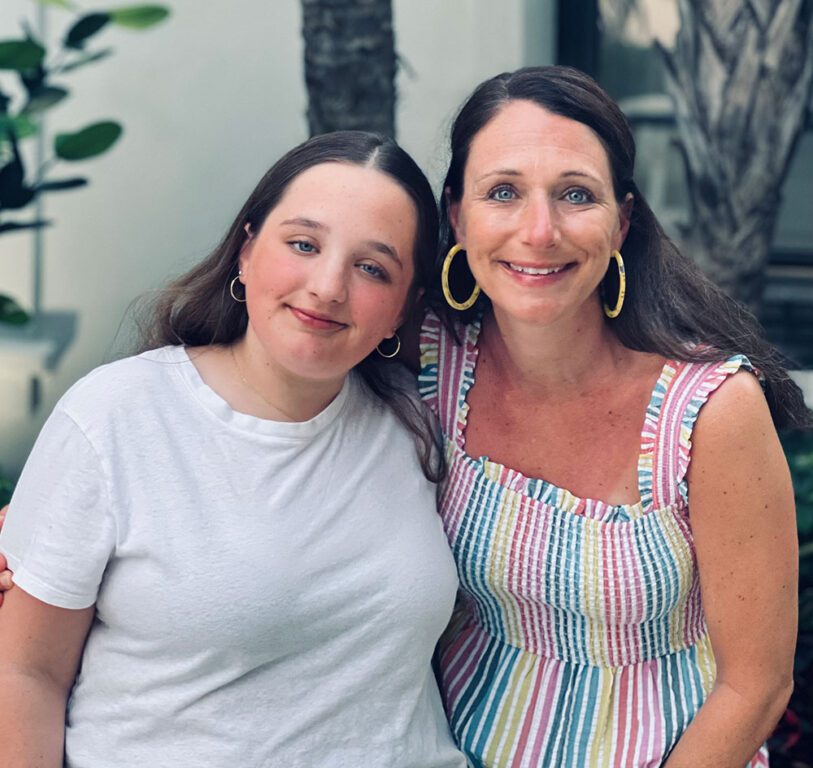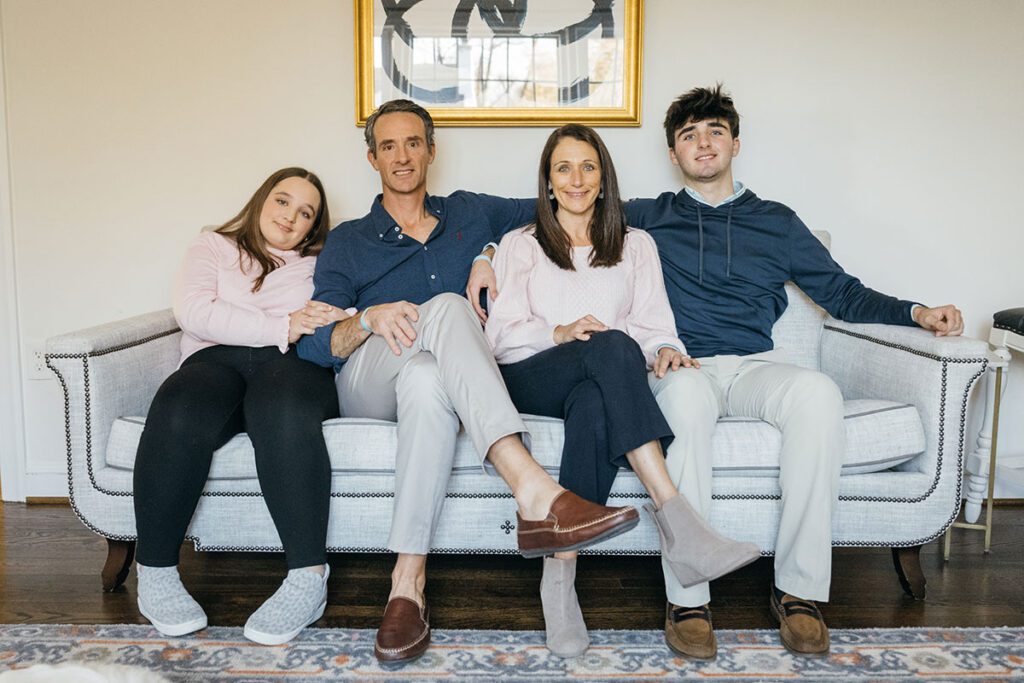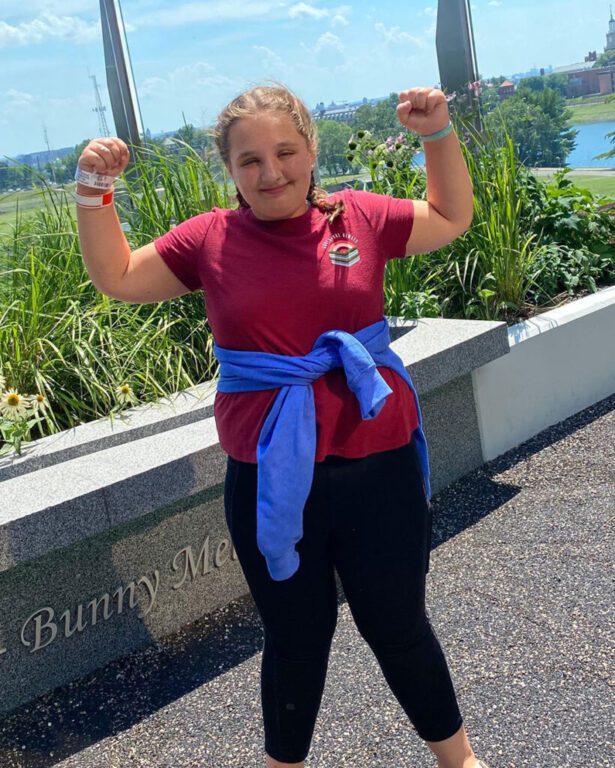Acknowledgment: This story is sponsored by Day One Biopharmaceuticals and is promoted through the Patient Worthy Collaborative Content program. We only publish content that embodies our mission of providing relevant, vetted, and valuable information to the rare disease community.
Every year, approximately 1700 children are diagnosed with a type of brain tumor called pediatric low-grade glioma (pLGG). pLGG is the most common type of diagnosed brain tumor in children. These tumors are found in the brain or spinal cord and can lead to loss of balance, headaches, nausea, vomiting, fatigue, and more.
pLGG can represent a dramatic change for children and their families. In this article, you’ll learn about Lila and her family, who have remained hopeful even in the face of many challenges.

Lila lives with pLGG, lives for teaching
Meeting Lila, now 15 years old, you wouldn’t think she was different from other children her age. She talks about her hobbies of playing tennis and baking. She discusses her future of becoming a teacher. Yet, Lila lives with pLGG, a type of slow-growing brain tumor, which has placed a significant burden on the lives of her and her family.
Lila’s story began at 15 months old when Nicole, Lila’s mom, realized Lila had trouble balancing and noticed that her hand had been in a fist for a few weeks. Nicole remembers, “We went to the ER once or twice, we’d been to the pediatrician, and finally, one day, I just said, this is not right. And we went in for a CT scan.” When the scan revealed that Lila had a brain tumor, her treatment journey for pLGG began.
Comprehensive genomic testing may help uncover more about pLGG
When Lila was diagnosed, not many treatment options were available, and those that were available, left her feeling fatigued and resulted in hair loss. According to Nicole, “Many of those treatments that she was on the first 2 to 4 years, we are now seeing the long-term, late-term side effects that are coming from those.”
Eventually, Lila’s doctor recommended to test her tumor tissue using genomic testing to determine if a BRAF mutation was present in her tumor.
Comprehensive genomic testing can help uncover the underlying biology of pLGG tumors. The process looks to identify any potential gene alterations within the cells of a child’s tumor to help the care team understand how the tumor may behave and what treatments may be most appropriate. Testing the tumor early, if and when possible, can help with treatment decisions for children living with pLGG.
The doctors performed the test using a small sample of Lila’s tumor tissue, and it indicated that Lila’s tumor did have a BRAF point mutation. This discovery qualified her for new types of treatment.

Support, resources, and community are available throughout the journey
Many pediatric cancer advocacy foundations exist to provide support and education for those going through similar situations. In fact, Nicole and her husband started the Lilabean Foundation for Pediatric Brain Cancer Research in Lila’s honor. The foundation’s focus has been funding research for pediatric brain cancer. Through Nicole’s foundation work, she is optimistic about the future of pediatric brain cancer research: “I feel like we’re at a point where we’re really about to embark upon some exciting discoveries which may help our kids in real time.”

A hero to her family and others impacted by pLGG
Lila’s story has inspired and empowered every member of her family. Her brother, Braden, understands the anxiety and worries that the diagnosis has caused but remarks on how “impactful and inspiring [it is] to see how happy and hopeful she was through all of it.” Lila’s resilience inspires Braden in his own life: “She’s always so brave, and her perseverance inspires me to do the same because it helps put things in perspective. There’s nothing I can’t handle because I’ve seen all that she can handle, and she’s my hero because of that.”
Like Braden, Nicole also says that Lila is her hero. Lila’s positive outlook while going through all these treatments and side effects has inspired Nicole: “She is an inspiration every single day. She does not sweat the small stuff. She is always positive; she is always helpful. She is kind, she is generous, and she is loving, even on her worst days.”
As for Lila, she wants to help others who may be going through similar situations: “I want to help kids learn. Because of all the struggles that I’ve gone through. I want them to know that they’re in this and people have gone through the same thing that they have. Whoever is my age and who is going through this, you got this. Stay strong, you’ll win this fight.”
The more you know about pLGG, the more you can feel empowered when creating a plan of action.
Watch Lila’s video and discover helpful resources, such as a Doctor Discussion Guide, at rethinkPLGG.com to help with treatment discussions.
©2023 Day One Biopharmaceuticals, Inc. All rights reserved.
PLGG- US-0129 (08/23)


